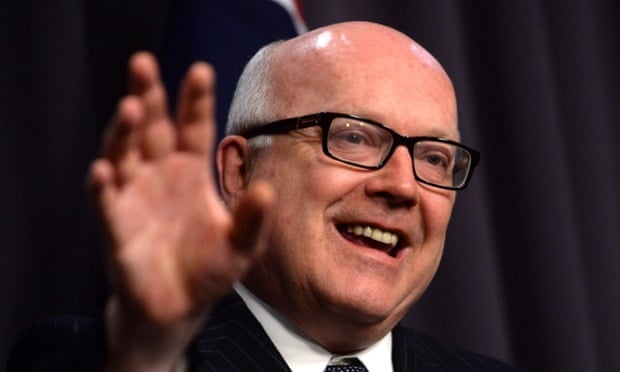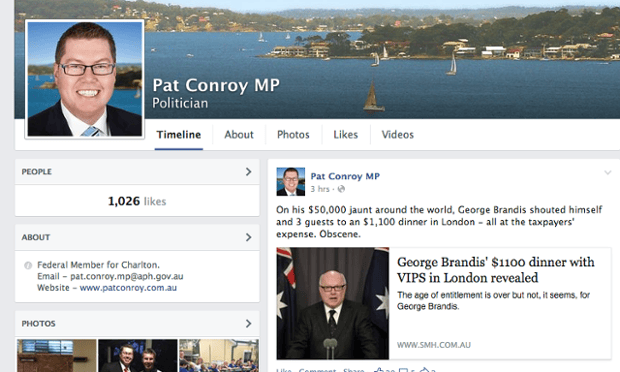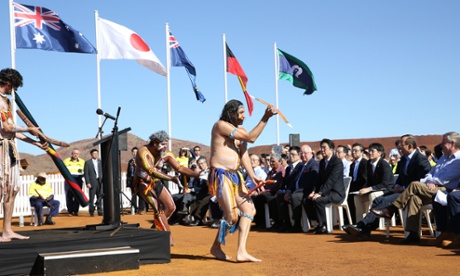Growing social inequality in Australia
By Richard Phillips
20 June 2014
The gap between rich and poor in Australia is widening, according to Oxfam Australia research released this week. The Oxfam data punctures Australian Treasurer Joe Hockey’s claims last week at the right-wing Sydney Institute that those pointing to growing social inequality were “misguided” (see: “Australian treasurer defends austerity budget as ‘fair’”).
Entitled Still the Lucky Country? the Oxfam report reveals that the richest 1 percent owns the same wealth as the bottom 60 percent of the population. It also shows that the country’s nine richest individuals have a combined net worth of $58.6 billion, which is more than the combined wealth of the bottom 20 percent, or 4.5 million people. Australia’s wealthiest individual owns more than the bottom 10 percent, or about 2 million people.
“Income inequality in Australia has been on the rise since the mid-1990s,” Oxfam states. “In 1995, Australia had an average level in inequality compared to other wealthy OECD member countries. Today, we are below average, having become less equal than our peers despite having a better performing economy than most.”
The report includes a survey indicating that 79 percent of those polled believe that the gap between the richest and poorest Australians widened over the past decade, with over 60 percent believing that this made Australia “a worse place to live.”
The Oxfam poll also found that 76 percent thought the very wealthy did not pay enough tax; 75 percent wanted the government to take action to close the gap between the rich and poor; and 79 percent believed that the rich had “too much influence.”
The Oxfam report is backed up by a document released last week by Australia21, a non-profit research company, in collaboration with the Australia Institute. Entitled Advance Australia Fair? What to do about growing inequality in Australia, the document states: “In recent decades, the income share of the top 1 percent has doubled, the wealth share of the top 0.001 percent has more than tripled, and the share of the top 0.0001 (the richest one-millionth) has quintupled.”
On the other end of the scale, the bottom 20 percent of people relied on government payments for three-quarters of their income, with more than 35 percent of those on welfare living below the poverty line. Australia’s Newstart unemployment benefit is the lowest of all the OECD countries. Currently over 570,000 children in Australia—or one in six—are living in poverty.
Government tax cuts have disproportionally favoured the wealthy, the report notes, with $71 billion in savings for the top 10 percent of income earners in the past seven years.
As the report states: “The top tax rates have been reduced from 60 cents in the dollar in 1983–84 to 45 cents in the dollar today. Personal income can be disguised as company or superannuation income where it is taxed at only 30 and 15 (or zero) percent respectively.”
Advance Australia Fair ? shows that superannuation tax concessions, which largely benefit the wealthy, cost the government about $35 billion a year and will soon overtake the annual budget for the aged pension and its 2.4 million recipients.
The report also highlights the debilitating impact of social inequality on the health, education and well-being of the poorest sections of society.
“Greater income inequality,” it states, “leads to more unequal access to quality housing, education, nutritious food, and healthcare. Low income groups are less likely to be able to afford to live in neighborhoods that are conducive to better physical and mental health … They are more likely to hold jobs that are precarious and low paid, thereby creating a greater risk of cardiovascular disease and mental ill health.”
Figures cited showed “a consistent correlation between low level of income and high level of heart disease, cancer, diabetes and depression.”
Treasurer Hockey told the Sydney Institute last week that the government faced a budget emergency because too many people were receiving welfare. Contrary to this claim, Household, Income and Labour Dynamics in Australia (HILDA) data released this week by the Melbourne Institute shows that working-age Australians are less reliant on welfare than they were a decade ago.
The HILDA survey, which has tracked a sample of households since 2001, indicated that those relying on welfare aged between 18 and 64 declined from 23 percent of people in 2001 to 18.6 percent in 2011. Those deriving half their income from welfare dropped from 12 to 10.1 percent during the same period.
In HILDA’s sample there was a sharp decline in those reliant on single-parent payments, from 43.8 percent in 2001 down to 32.6 percent in 2011. Fewer were also dependent on the age pension, with the proportion of income coming from the pension declining from 67.8 percent in 2001 to 59.9 percent in 2011.
HILDA report editor, Associate Professor Roger Wilkins, told ABC News’ “Breakfast” on Monday that welfare reliance had been declining for about two decades. “It is hard to reconcile that trend with the current public discourse, particularly coming from the Coalition government. You certainly couldn’t argue that there is a welfare emergency or welfare dependency emergency that’s recently emerged,” he said.
The basic political question facing the working class is not whether more or less people are dependent on welfare or pensions payments, but that adequate social welfare should be provided to all those who require it as a basic democratic right.
The fact that declining numbers of people are reliant on welfare and pensions, under conditions of growing social inequality, increasing poverty and widespread job destruction, is an indictment of successive Labor and Liberal-National governments. During the past decade, in line with the demands of big business, governments have introduced welfare cutbacks and measures that are condemning millions to a life of poverty.
The author also recommends:


